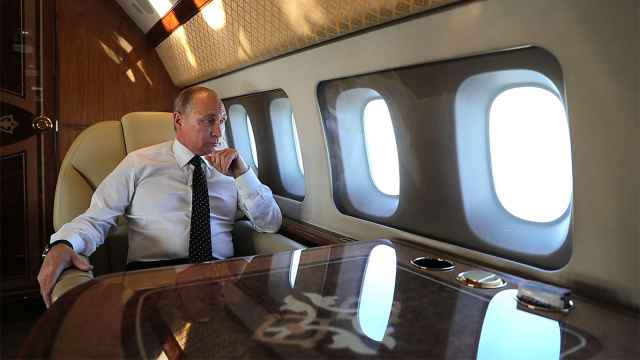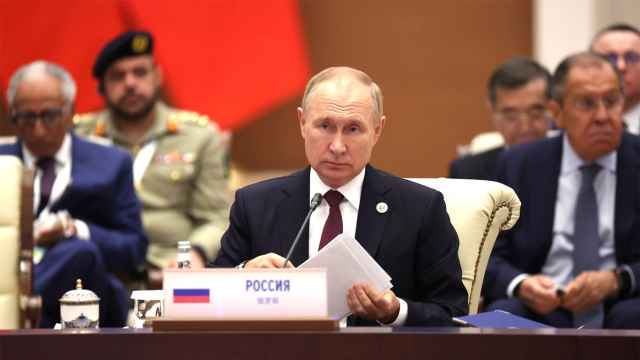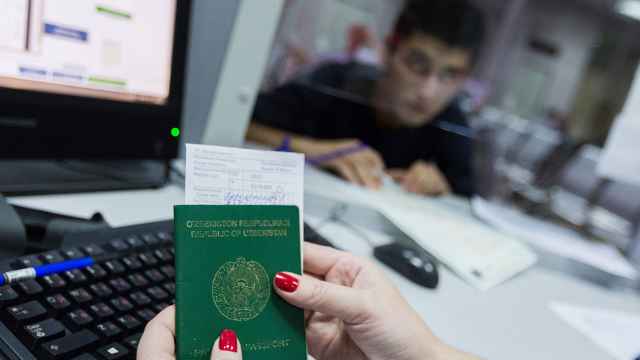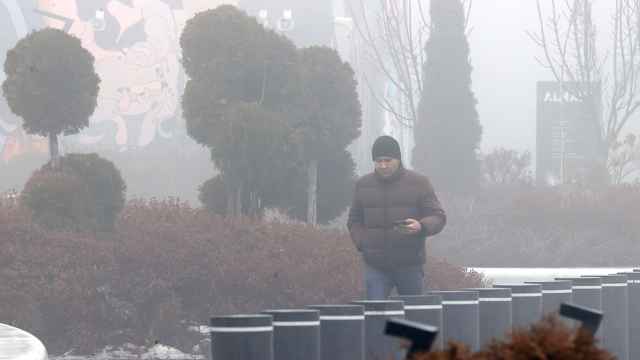BISHKEK – A well-known musician returned to his home country of Kyrgyzstan on Monday after authorities in neighboring Kazakhstan wrongly accused him of taking part in last week’s anti-government protests that roiled the ex-Soviet nation.
But for jazz pianist Vikram Ruzakhunov’s colleagues and activists, his release only highlights the plight of dozens of lesser-known Kyrgyz nationals detained in Kazakhstan as the country’s leadership attempts to pin blame for the unrest on outside actors.
“We’re delighted that he returned home, but it’s only the beginning,” popular Kyrgyz singer Kairat Primberdiyev, who along with another famous singer Yulia Rutskaya organized rallies on Sunday outside the Kazakh Embassy in Bishkek demanding Ruzakhunov’s release, told The Moscow Times via social media.
“The world community needs to know that other Kyrgyz nationals have been detained in Kazakhstan, where authorities seem to want to blame Kyrgyz citizens for every terrorist crime,” he said.
Kazakhstan’s protests, which initially began over a New Year’s Day gas price hike, spilled over into political demands and eventually spiraled into violence, with dozens of deaths and 10,000 arrests.
Ruzakhunov, 36, appeared in a video confession broadcast on Kazakh state television Sunday to buttress the authorities’ claims of foreign links to the week of violence that rocked the energy-rich Central Asian nation.
It showed him with bruises and scratches on his swollen face while confessing to having been promised $200 for taking part in the rallies in Almaty, Kazakhstan’s biggest city.
“I became a victim of the circumstances,” Ruzakhunov told journalists shortly after returning to Bishkek on Monday evening, echoing the Kyrgyz security service chief’s earlier claim that he was “in the wrong place at the wrong time.”
Ruzakhunov said he was not abused while in custody and that he voluntarily incriminated himself because “I heard that they send you home once you do that.”
Asked about his injuries, the musician said the bruises on his face were the result of his “brutal detention” by the Kazakh military at a security checkpoint during his attempt to flee the country as violence broke out.
Fellow artists came to Ruzakhunov’s defense, describing him as an accomplished entrepreneur and jazz pianist who regularly tours internationally, including in Kazakhstan, and organizes music festivals at home.
“Of course his confession was forced,” IT entrepreneur Azis Abakirov, Ruzakhunov’s friend and former colleague, told The Moscow Times by phone. “It looks like they abused him.”
“A self-sufficient business owner like him would not embark on this adventure,” Primberdiyev said.
Wrong man
Kazakh authorities later said the man who confessed on video was not Ruzakhunov, but another Kyrgyz national named Zakir Uburov. Ruzakhunov himself has not denied that he is the man in the video.
Kyrgyz media then cited the family of Zakir Yuburov — using a different spelling of the surname — a Kyrgyz glassware salesman in Almaty who has not been heard from since late last week denying he was the man in the confession video.
“Our ombudsman has asked colleagues in Kazakhstan to determine Yuburov’s fate; we’re all trying to find him,” prominent Kyrgyz human rights activist Dinara Oshurakhunova told The Moscow Times via social media.
Kazakh state media deleted footage of Ruzakhunov’s confession following the uproar in next-door Kyrgyzstan, whose economy is heavily dependent on remittances from its nationals who work in Russia and Kazakhstan.
The Kyrgyz Foreign Ministry lodged a protest against Ruzakhunov’s detention, while its Justice Ministry asked Kazakhstan to open a criminal probe into his alleged torture. The head of Kyrgyzstan’s security service said the Kazakh authorities wrongfully accused the musician of being a “terrorist.”
Kazakh President Kassym-Jomart Tokayev, backed by Russian President Vladimir Putin, insists that there was foreign involvement in the protests.
“I have no doubt that it was a terror attack," Tokayev told European Council President Charles Michel late Monday, adding that it involved "foreign fighters" from Central Asian countries, Afghanistan and the Middle East.
A Russia-led regional military bloc deployed 2,500 troops to help protect state facilities in key cities at Tokayev’s unprecedented request. Speaking Monday, Putin said the Collective Security Treaty Organization (CSTO) would not allow “color revolutions” to take place in its member states.
Oshurakhunova said she believes Ruzakhunov was pressured into saying he was not abused in custody.
“He’s most likely being intimidated so he won’t speak up right away,” she told The Moscow Times. “We see in the video that he was probably tortured and forced to incriminate himself.”
‘Fake cartoon’
Oshurakhunova further raised concerns over an estimated 38 Kyrgyz citizens who Russian news agency Interfax reported were rounded up and had their passports seized before being released in the southern Kazakh city of Shymkent.
“Activists are concerned that these passports could be used in another fake cartoon about ‘terrorists from Kyrgyzstan’,” she said.
Interfax reported that one of those detained was in critical condition without medical assistance after being allegedly beaten during an interrogation. Two Kyrgyz nationals died in the unrest in Kazakhstan, it added.
“We found out about the 38 people in Shymkent when the internet was briefly turned on, but we don’t know what’s happening in Almaty, Aktau or Aktobe,” she added, referring to widespread telecommunications outages during the unrest.
Kyrgyzstan’s consulate in Almaty did not immediately respond to requests for comment.
Singer Primberdiyev, who holds the title of Honored Artist of the Kyrgyz Republic, vowed to lobby for the release of fellow Kyrgyz citizens still in detention and without access to lawyers in neighboring Kazakhstan.
“It wasn’t only musicians, but our entire country that was concerned about Vikram,” he told The Moscow Times. “But now it’s time to seek justice for all our citizens.”
AFP contributed reporting.
A Message from The Moscow Times:
Dear readers,
We are facing unprecedented challenges. Russia's Prosecutor General's Office has designated The Moscow Times as an "undesirable" organization, criminalizing our work and putting our staff at risk of prosecution. This follows our earlier unjust labeling as a "foreign agent."
These actions are direct attempts to silence independent journalism in Russia. The authorities claim our work "discredits the decisions of the Russian leadership." We see things differently: we strive to provide accurate, unbiased reporting on Russia.
We, the journalists of The Moscow Times, refuse to be silenced. But to continue our work, we need your help.
Your support, no matter how small, makes a world of difference. If you can, please support us monthly starting from just $2. It's quick to set up, and every contribution makes a significant impact.
By supporting The Moscow Times, you're defending open, independent journalism in the face of repression. Thank you for standing with us.
Remind me later.







